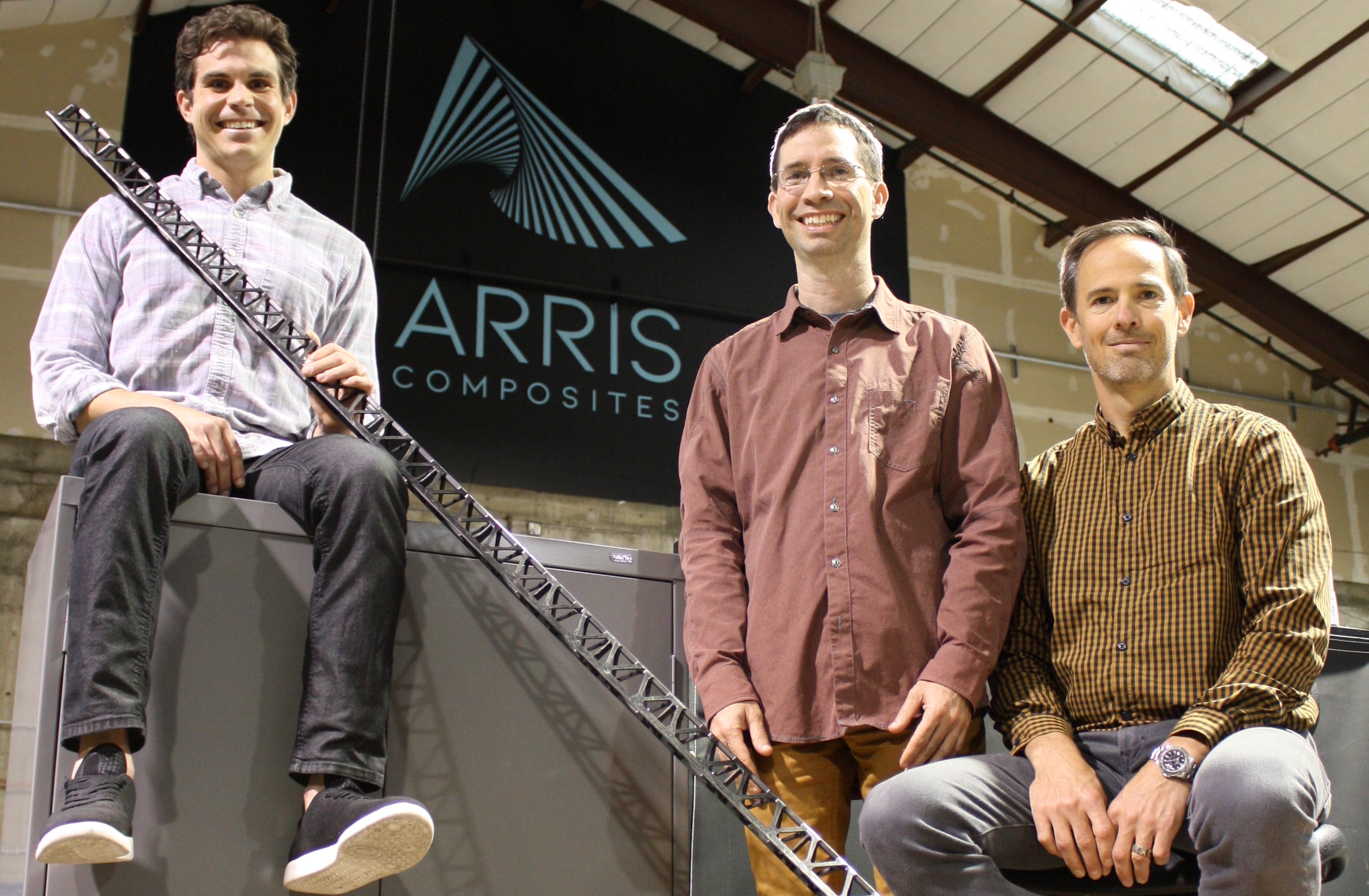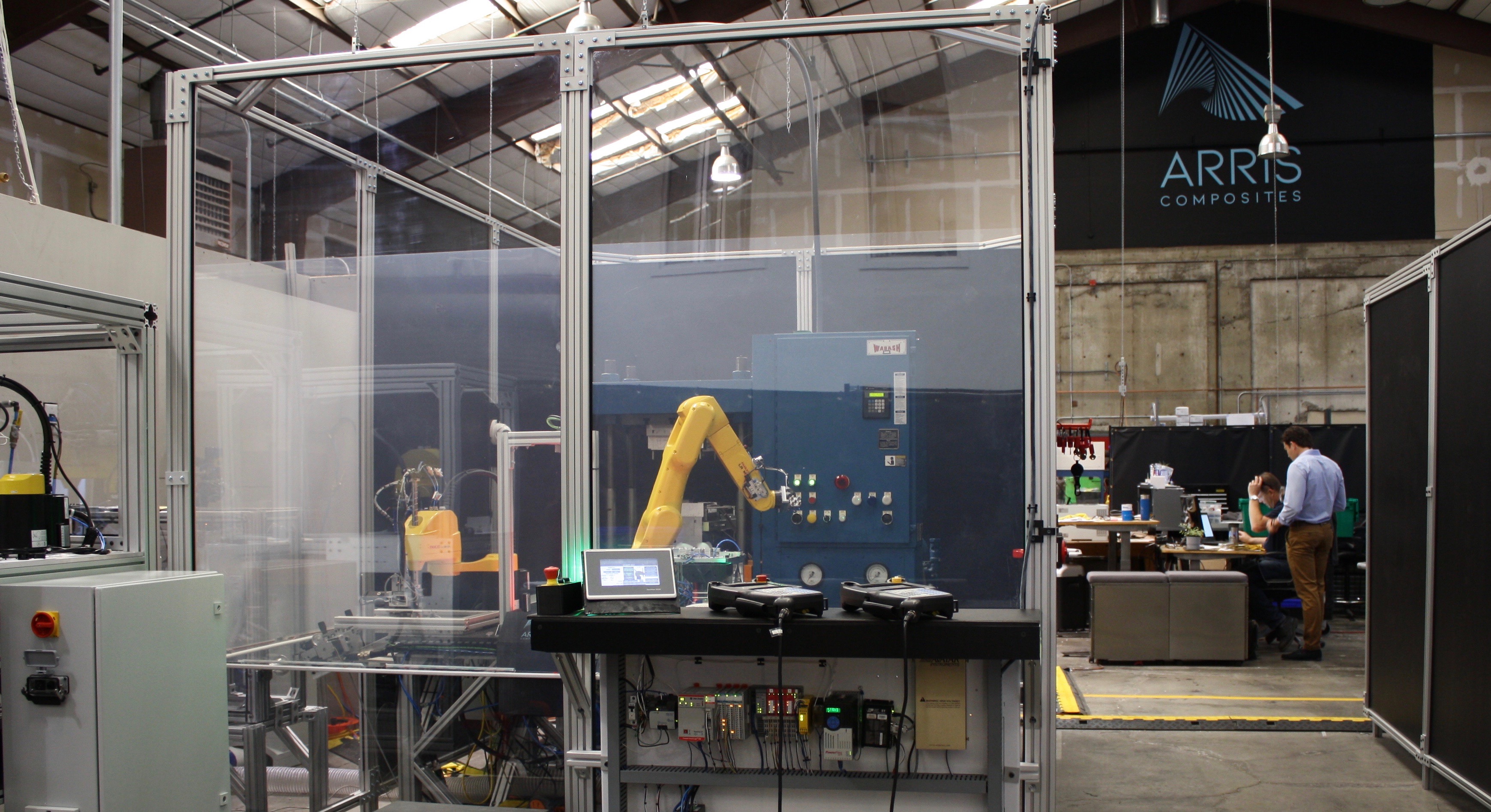California-based Arris Composites, a developer of continuous carbon fiber composites, has secured $48.5m in Series B funding in order to continue its expansion in Southeast Asia and the US. Operating in stealth mode until last year, Arris Composites has now raised a total of $58.5m in funding over two rounds of investment.
A VC firm from Taiwan, Taiwania Capital, led the second and most recent round of investment, supported by returning investors New Enterprise Associates (NEA) and Valo Ventures to raise the $48.5m.
The Series B round follows the initial Series A investment round in January 2019 led by NEA, a venture capitalist firm with over $20 billion in assets under management, which raised $10m along with Valo Ventures and Alumni Ventures Group.
Former Autodesk CEO Carl Bass will join the board of directors as part of the deal. Bass has been involved with the company in various roles, and the company’s first-ever part was produced in his personal shop.
Arris Composites says it will tackle “the scalability problem within 3D printing”, and has been heavily involved in developing composite materials for the aerospace and automotive industries over the past two years. Having successfully developed resins and glass fibers which are still being used in the aerospace industry, Arris Composites now plans to enter the consumer electronics market using its Additive Molding Manufacturing Technology.
“High-performance composites that can be mass-produced in new ways hold incredible promise for all kinds of products,” said Greg Papadopoulos, Venture Partner at New Enterprise Associates and former Chief Technology Officer of Sun Microsystems.
“We’ve been impressed with the maturation of their manufacturing technology and the intense interest and enthusiasm we’ve seen from top brands in the consumer, automotive, aerospace and other industries in leveraging Arris Composites’ manufacturing methods for next-gen, not-yet-released products,” Papadopoulos added.

Additive Molding Manufacturing Technology
Arris Composite’s Additive Molding Manufacturing technology is a manufacturing process that combines additive manufacturing and high-speed compression molding to produce thermoplastic composite components. The technology combines the performance benefits of 3D printed continuous carbon fiber-reinforced composites with the speed and cost benefits of molding technologies. Additive Molding Manufacturing technology uses robots to shape, cut and place resin-covered carbon fiber pieces in a mold cavity. The cavity then closes, applying heat and pressure to consolidate and cure the material. By shaping the fibers instead of consolidating and bonding them in situ, the pre-forming process can run at high speeds, which lends itself to mass production.
Funding for carbon fiber 3D printing ventures
In January 2020, Switzerland’s carbon fiber 3D printing 9T labs secured funding to develop its continuous carbon fiber 3D printing technology, raising $4.3 million in seed financing. Through 3D printing, 9T Labs aims to make carbon fiber composite materials as accessible as ordinary metal materials, by providing an integrated workflow for producing carbon fiber composite parts.
9T Labs is developing the Red Series 3D printer for carbon fiber composite production. The Red Series is an FDM 3D printer for continuous fiber production, and a Fusion Unit system for post-processing, 9T Labs claims it can produce carbon fiber parts with less than two percent void content, and up to sixty percent volumetric carbon composite content.
Elsewhere, Anisoprint, the Russian manufacturer of continuous carbon-fiber 3D printers and materials, showcased the latest iteration of its continuous fiber reinforced polymer (CFRP) composite material 3D printer at a conference last year in Skolkovo, Russia.
Anisoprint technology integrates composite reinforcing fiber with filament during the 3D printing process. This improves adhesion between the polymers and the fiber and produces parts that are said to be 25 times stronger than pure plastic and 7 times lighter than steel.

Applications in the consumer electronics market
Arris Composites will use the additional funding to cater for increasing demand in the consumer electronics market, with plans to open a new manufacturing facility in Taiwan and expand on its composite manufacturing facilities in the US.
The rapid pace of innovation in the consumer electronics sector has caused devices to constantly become smaller, smarter and lighter in recent years, according to Arris Composites. The company claims that this has made their technology very popular in the industry, and has stated that its first publicly available manufactured product will likely be a portable electronic device.
You can now nominate for the 2020 3D Printing Industry Awards. Cast your vote to help decide this year’s winners.
To stay up to date with the latest 3D printing news, don’t forget to subscribe to the 3D Printing Industry newsletter or follow us on Twitter or liking our page on Facebook.
Looking for a job in the additive manufacturing industry? Visit 3D Printing Jobs for a selection of roles in the industry.
Featured image shows Arris Composites’ Ethan Escowitz. Photo via Arriss Composites.



